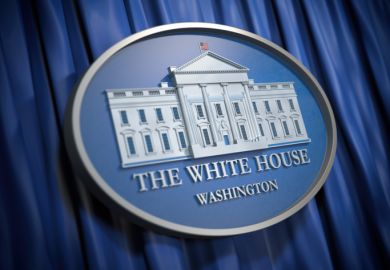The Trump administration’s retreat from deporting international students whose campuses move online has provided only limited relief for their advocates, who anticipate more such election-year antagonising of immigrants.
The administration backed off its proposal only after a determined pushback from academia and beyond, including a series of lawsuits.
But with another four months to the presidential election, experts saw Donald Trump as having the means to do more damage to higher education by demonstrating to his supporters his anti-foreigner credentials.
One of the more imminent administration actions was the expectation that Mr Trump, having been stopped from evicting students already in the US, will continue to block applicants who had been planning to arrive this autumn as freshmen.
Even more damaging actions, analysts have warned, could involve new limits on Optional Practical Training, the programme that allows international students to remain in the US for a few years after graduation to work in their field of study.
Another possible administration pushback, said Rachel Banks of Nafsa: Association of International Educators, could involve requirements for international students to obtain periodic renewals of their legal status.
Currently, international students are allowed to enter and remain in the US throughout their studies. Requiring interim renewals of that status “will be hugely disruptive for students and for schools”, said Ms Banks, Nafsa’s senior director for public policy.
“You can imagine that students overseas will feel that injects too much uncertainty into the prospect of trying to pursue a four-year degree programme in the United States,” she said.
Just last month, the Trump administration added restrictions in visa categories that universities often use for visiting scholars and that companies use to hire university graduates.
Some attempt at new restrictions seems inevitable, said William Kerr, a professor of business administration at Harvard University. “Over the next few months,” he said, “I’m sure we’re going to see increased action from the president and the administration on the immigration front.”
After three years, experts said, the damage from such policies was only getting clearer. One of the most jarring new examples came from Georgetown University, where analyst Zachary Arnold found a 75 per cent increase over the past two years in the number of US residents moving to Canada under a programme that accepts skilled workers.
Acceptances from the US grew at a much faster rate than those from other countries and could be attributed “entirely” to a 128 per cent rise among non-US citizens, Mr Arnold said.
Many of those non-citizens – about 20,000 people between 2017 and 2019 – were likely to have been educated at US universities before heading north, said Mr Arnold, a research fellow at Georgetown’s Center for Security and Emerging Technology.
This poses a major concern for US institutions, said Tobin Smith, vice-president for policy at the Association of American Universities, because US universities need a lot of their graduates to stay in the country and teach classes — especially in high-demand science and technology fields where foreigners dominate and where private industry competes hard for talent.
Anna Esaki-Smith, co-founder of the global research consultancy Education Rethink, said international students would eventually figure out that there was less point in attending a US university and establishing social ties in the US if they understand they will have to leave.
Register to continue
Why register?
- Registration is free and only takes a moment
- Once registered, you can read 3 articles a month
- Sign up for our newsletter
Subscribe
Or subscribe for unlimited access to:
- Unlimited access to news, views, insights & reviews
- Digital editions
- Digital access to THE’s university and college rankings analysis
Already registered or a current subscriber?








